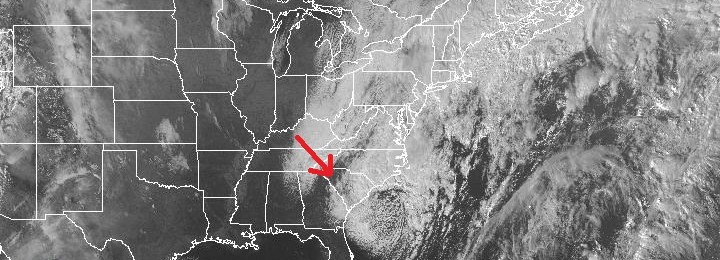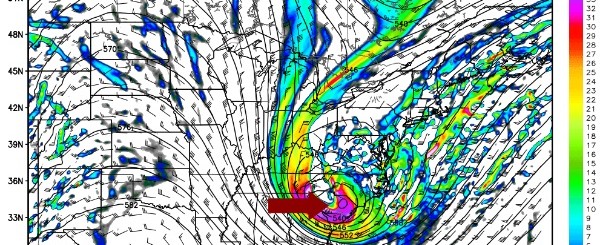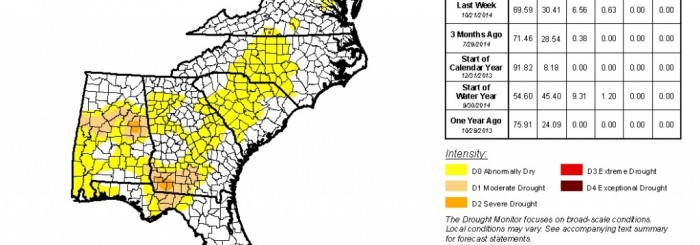Pam Knox
-

An article yesterday in The Week shows that bad weather is good for incumbents on Election Day. This may be due to the strong desire of invested citizens to participate in governmental choice compared to what you might call “fair weather” voters who are more likely to be discouraged from voting if the weather is…
-

The state was split into “haves” and “have nots” in October as precipitation was plentiful in western Georgia but sorely lacking in the east. Temperatures across the state were generally above normal and many record highs were broken or tied. In Atlanta, the monthly average temperature was 66.2 degrees F (2.9 degrees above normal), in…
-

Last night parts of the Southeast experienced their first snowfalls of the year. A few areas in Georgia received over an inch, such as Fannin County, and many people sent in photos to the National Weather Service showing the snow that fell at their locations. Some areas in South Carolina received over 6 inches of…
-

Climate.gov published an interview this week with Ron Bartel, a senior hydrologist with the University of Florida. Bartel works with farmers in the Southeast who are interested in switching from conventional crop rotation to sod-based crop rotation. In the interview, Bartel discusses his use of the Water Footprint Calculator, which is available from AgroClimate, one…
Posted in: Tools for climate and agriculture -

In honor of Halloween today, I am posting a link to a blog which describes the impacts of various types of climate conditions on pumpkin production. You can find it here from Earth Gauge. If conditions are cool and wet, mildew can reduce the yields or rot the pumpkins on the ground. If conditions are…
-

Many weather forecasters on my social media feeds have been highlighting the unusually cold weather that is predicted by many weather models to hit the Southeast this weekend. I have previous written about frost on Saturday and Sunday mornings and the possibility of a few snow flurries in far northeast Georgia. The Capital Weather Gang…
Posted in: Climate outlooks -

The USDA issued this statement yesterday about impacts of the recent drought on Early County in GA and surrounding counties, which also receive drought benefits from this declaration: The U.S. Department of Agriculture (USDA) has designated Early County in Georgia as a primary natural disaster area due to damages and losses caused by a recent…